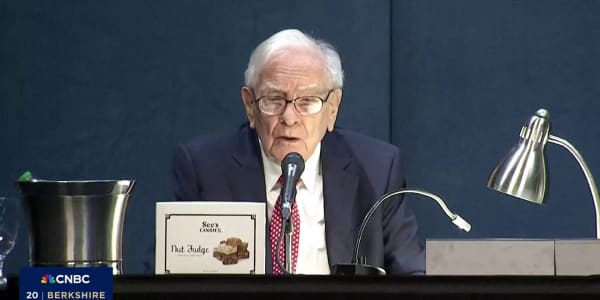Identifying talent and making the right hiring decisions are crucial to any organization. National Football League franchises are no exception. With the rise of computer-driven data analytics, the days of "gut decisions" made by scouts are long gone from the world of professional sports. But for the Indianapolis Colts, a better process for identifying talent is being created with insights from one of the NFL's few female owners.
"Our business is a little bit different from [other organizations]," Carlie Irsay-Gordon, daughter of Colts owner and CEO Jim Irsay, told CNBC in a recent interview at the MIT Sloan Sports Analytics conference. "I'm a third generation in the line of Colts owners, and [prior to this current arrangement] we sort of were just flying by the seat of our pants."
Irsay-Gordon, one of the only women with a prominent role within the NFL's ownership circle, said the Colts organization previously had values and a vision, but those elements came organically rather than as part of a set business objective. With a new generation of ownership at the franchise, the culture has evolved.
Irsay-Gordon spoke with CNBC and shared a few keys to her thought process as she and the Colts' staff search for the best talent among the hundreds of players they review each year.
1. You can be a decision maker without forcing your view. Encourage debate.
Open debate and collaboration are encouraged throughout meeting and film rooms within the team's facilities. Hearing opposing viewpoints is a vital element of the decision-making process within the Colts organization. "If you remove the ego, if your intention is, 'I just want to help the team,' you're not going to make someone sound dumb," Irsay-Gordon said about the team's decision-making environment. "What kind of progress are you going to make if there's constant pushback [to opposing views]." She added, "It's a much more Socratic environment, though there are still decision makers."
2. Curiosity counts for a lot in a potential hire.
Finding the right talent to fit within the organization is as crucial as setting the culture. "For both [on and off-field talent], the potential and the ability is what I look at more, along with how interested and curious a person is," she said. "[That] combined with hard work."
"At the end of the day, I'm a curious person; I want to learn. So [I look for people] who are also that way."
3. Even a brief interview can yield big insights, and a brief interview is often all you get.
On the field, identifying the right players goes beyond physical ability. There's a reason that front offices are placing more and more emphasis on the interview process at the NFL Scouting Combine. Last week each of 336 prospects in attendance spent 15 minutes with as many as 60 officials from NFL teams. While this isn't much time to get to know a player, it's an important part of the talent-identification process.
"Intangibles are important," Irsay-Gordon told CNBC, and they can stand out, since what all of her potential hires have in common won't alone distinguish them: "Most of these players are freak athletes," she said.
4. It's not always bragging; confidence can be a key trait.
Confidence is a factor in choosing talent, and it played a role in one of the Colts' best draft decisions ever: quarterback Peyton Manning over Ryan Leaf back in 1998.
"When [Manning came for his pre-draft visit], he said, 'If you don't take me, you'll regret it,'" Irsay-Gordon said. "I mean, who says that?"
The Colts selected Manning over Leaf, who underachieved as a professional, and the methodical Manning brought a championship to Indianapolis and finished his career as one of the best to ever play the position.
— By C. W. Crouse, special to CNBC.com






